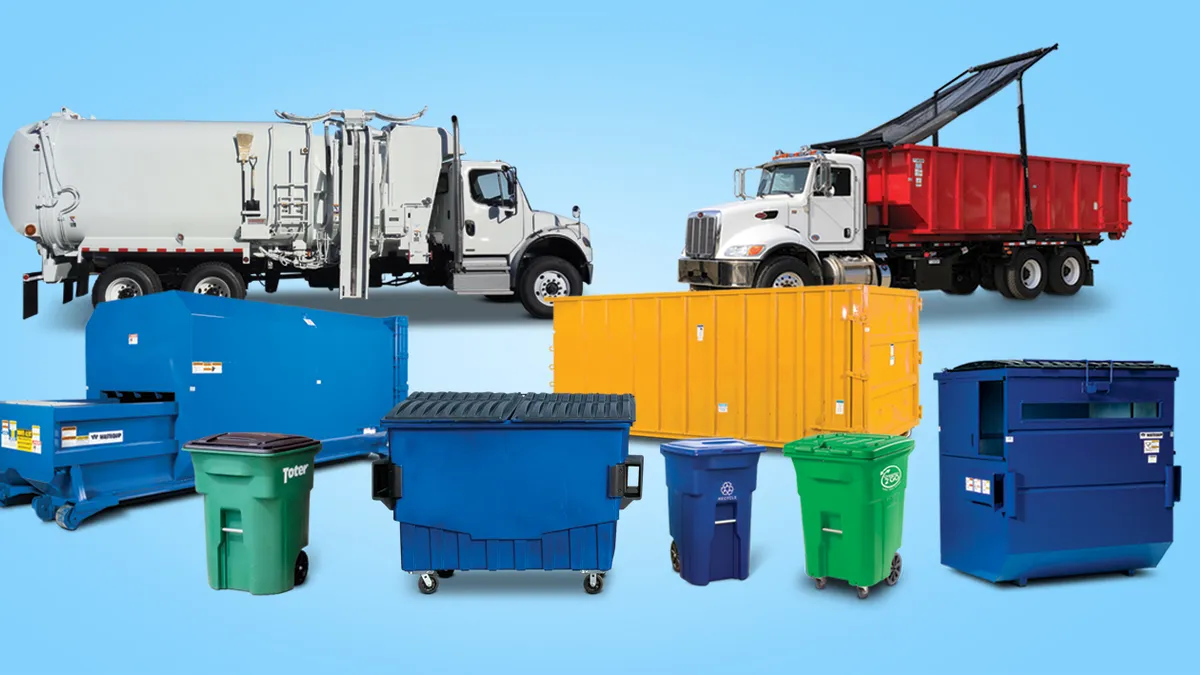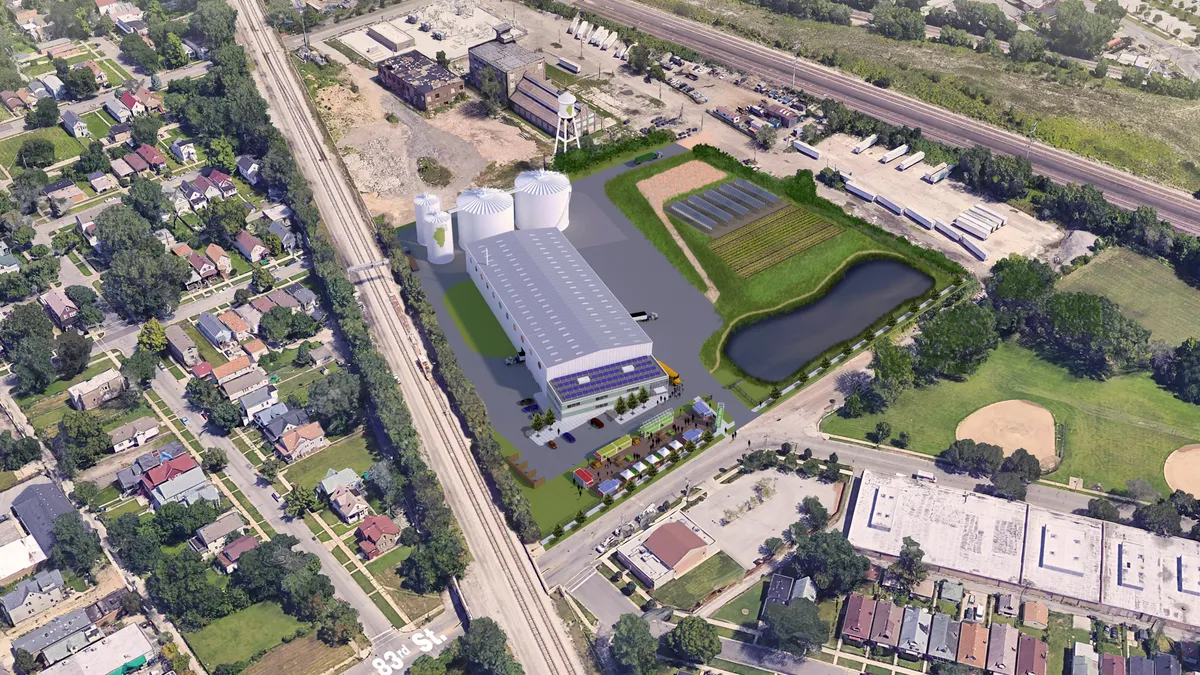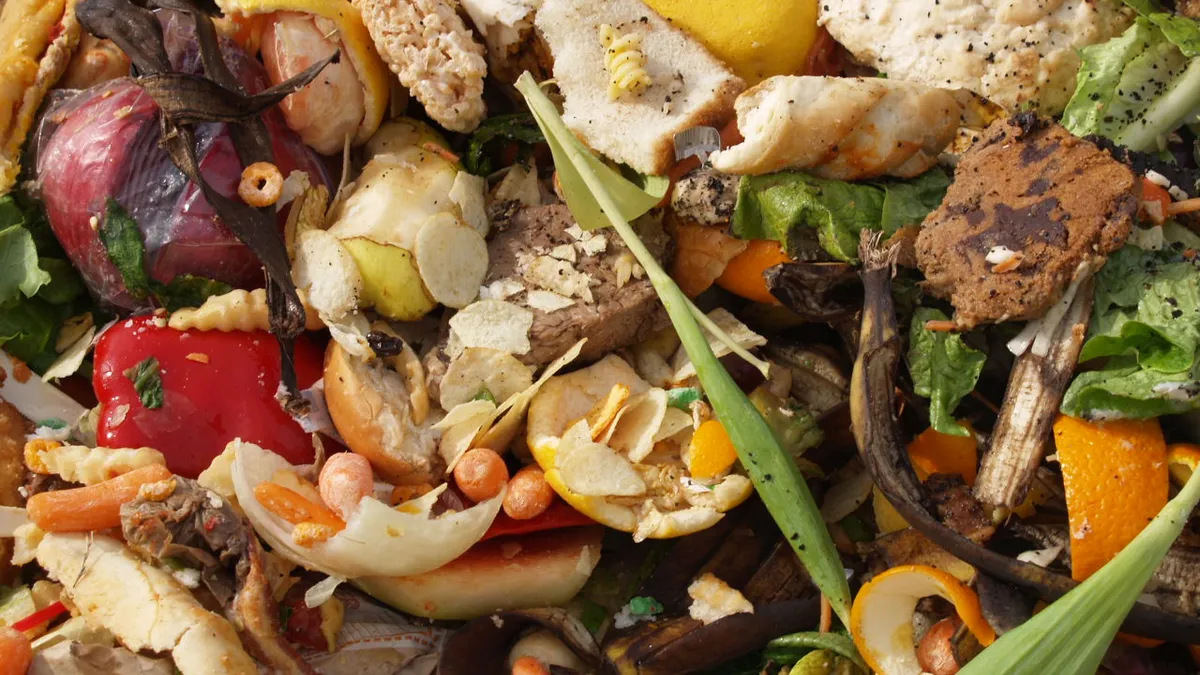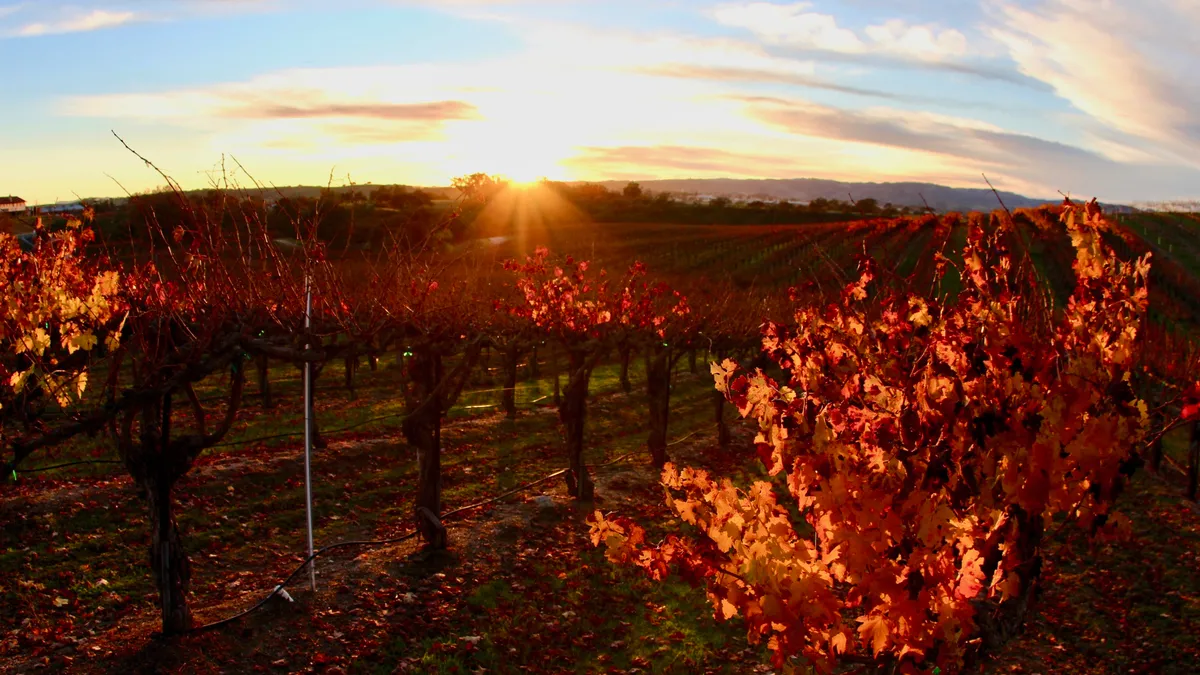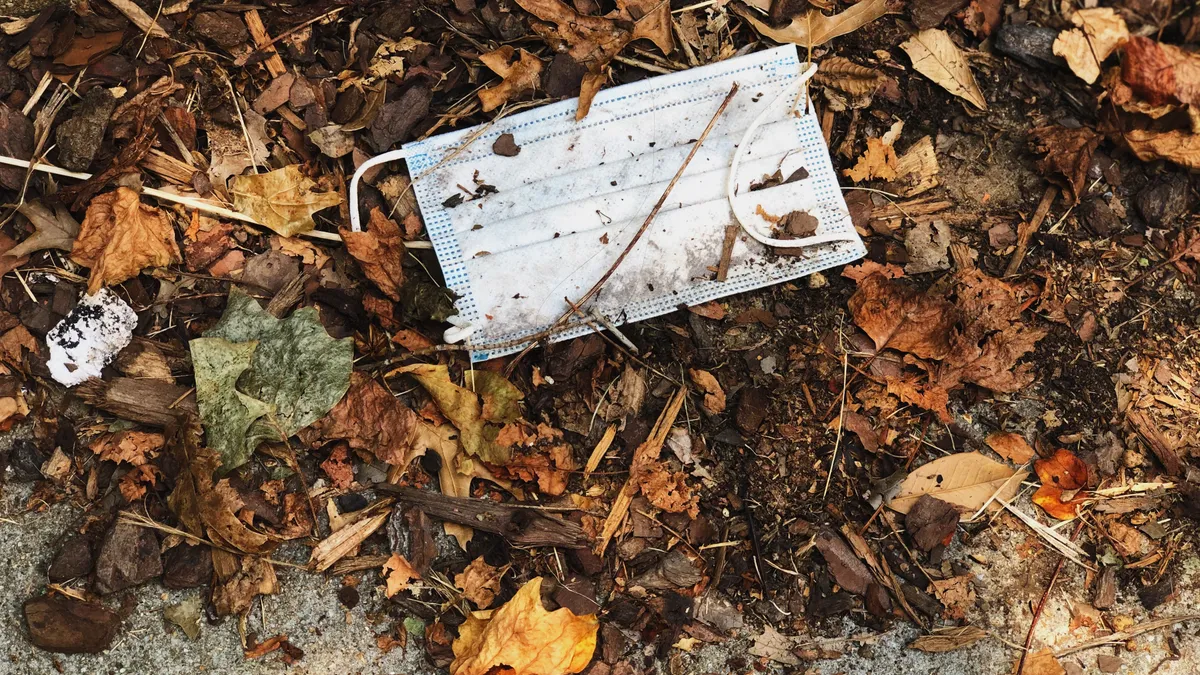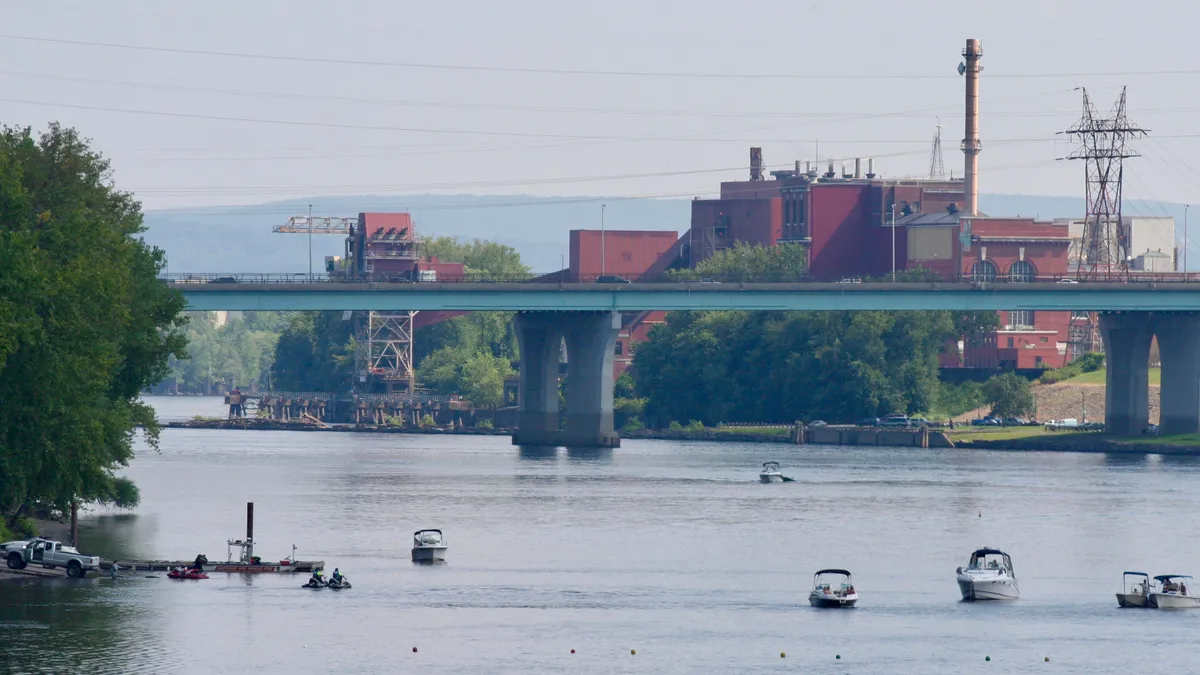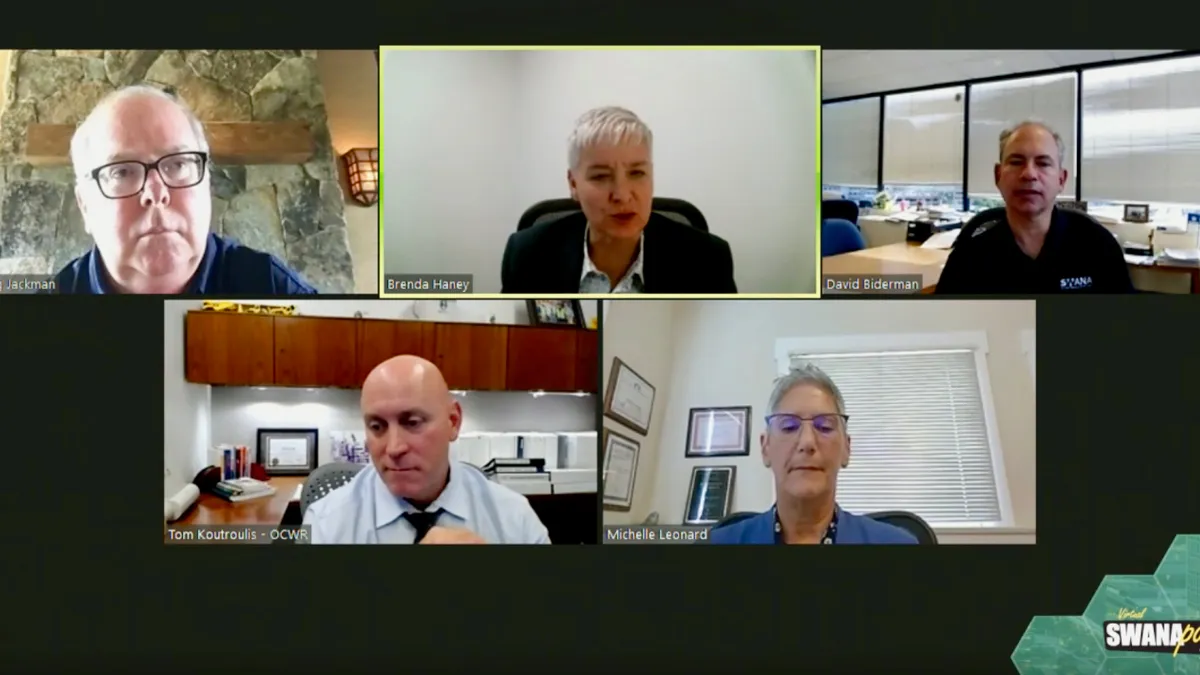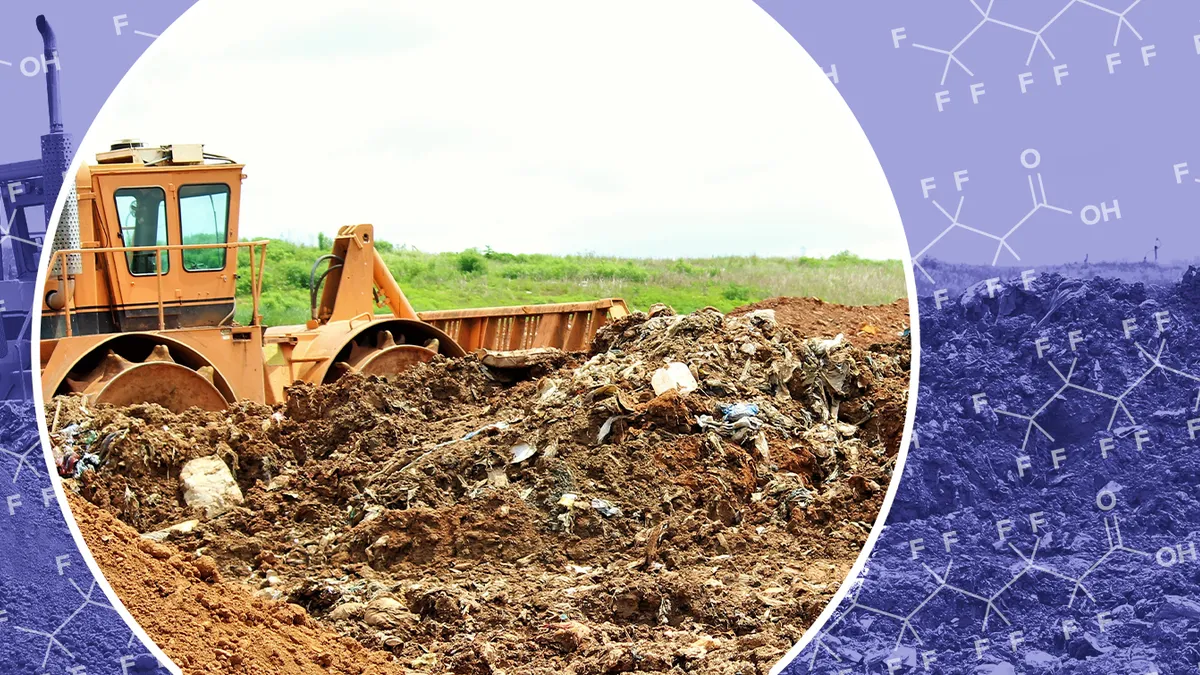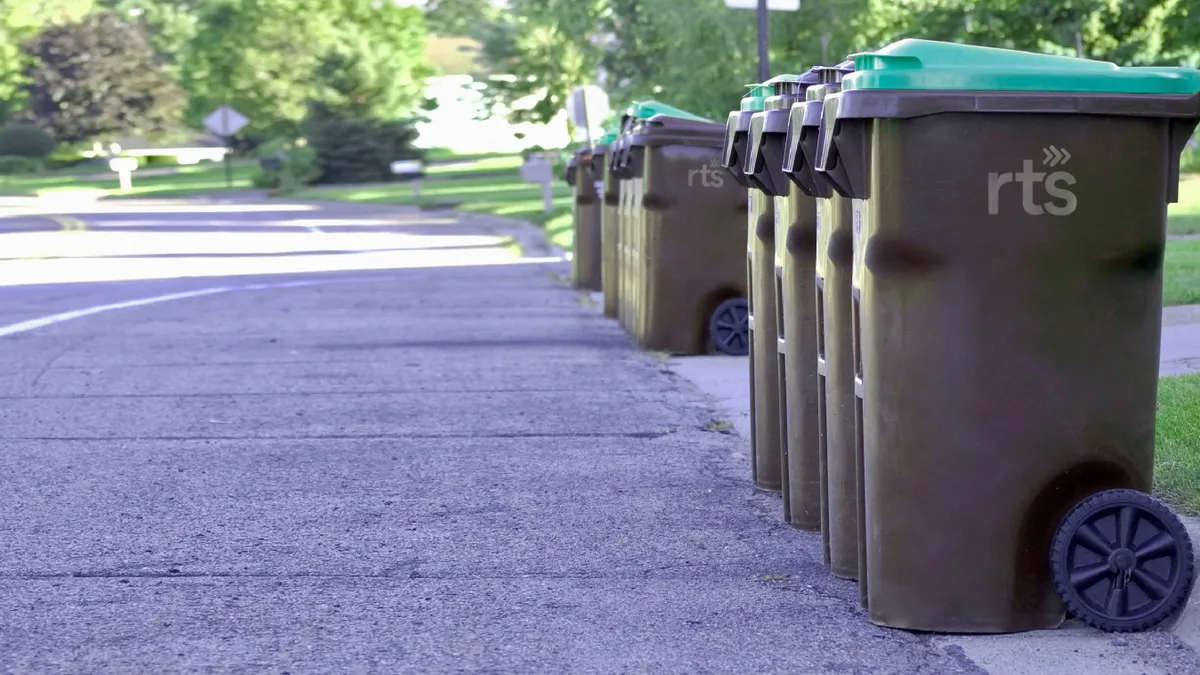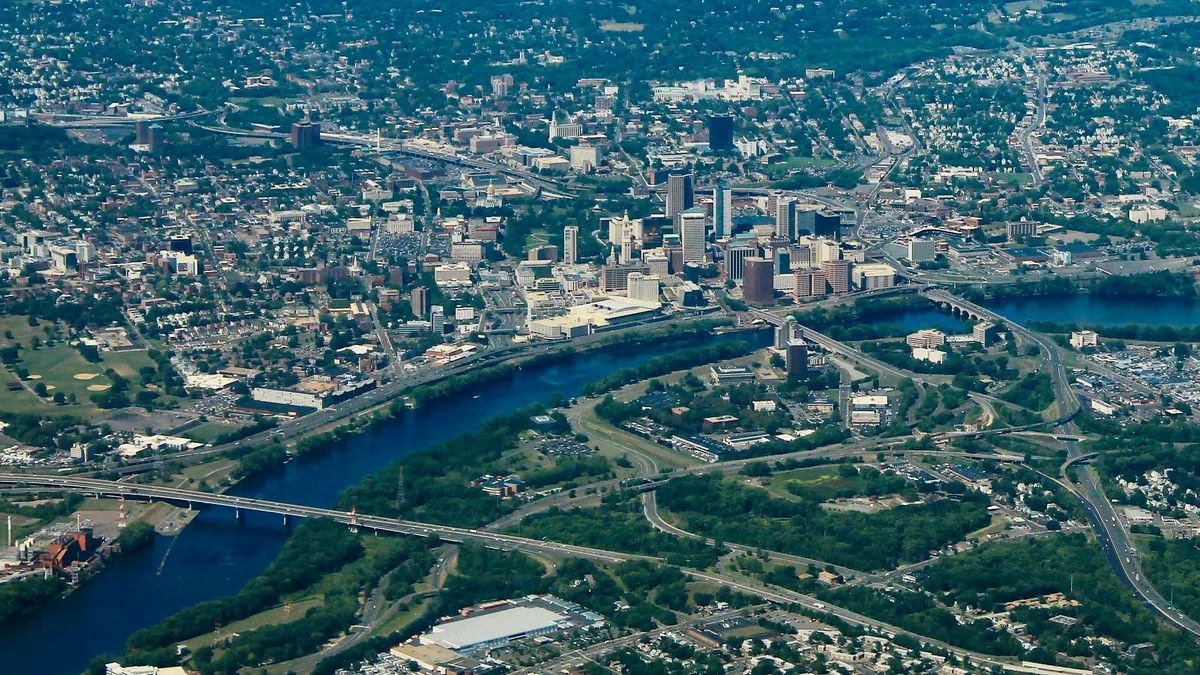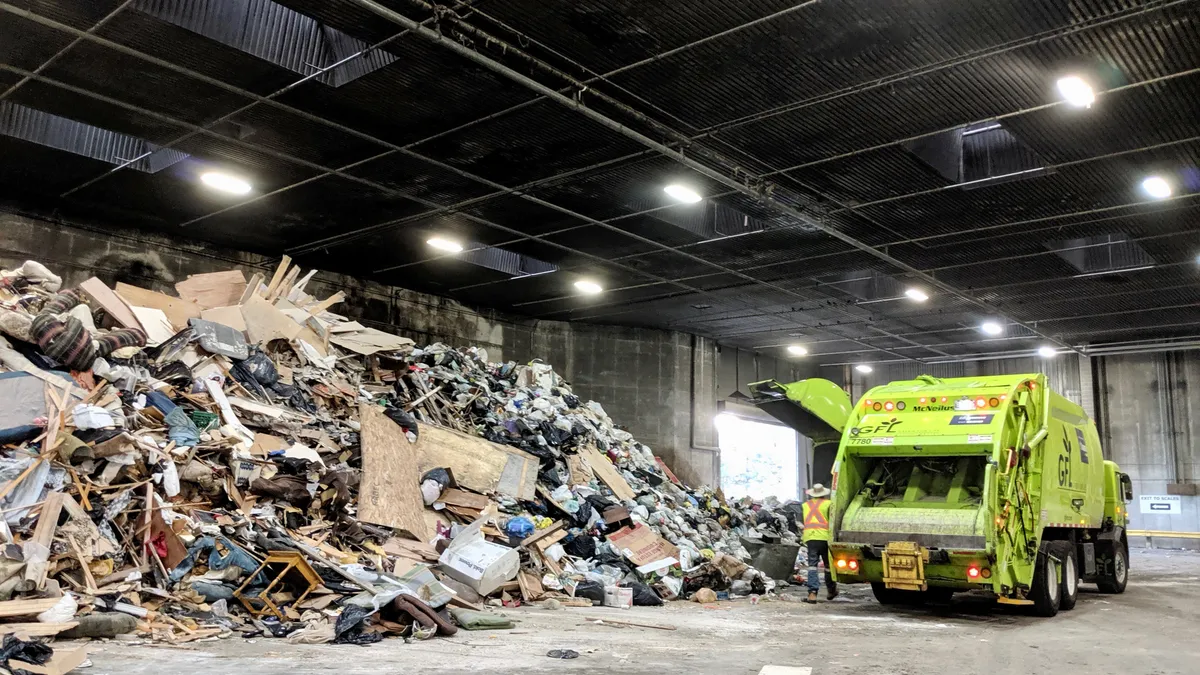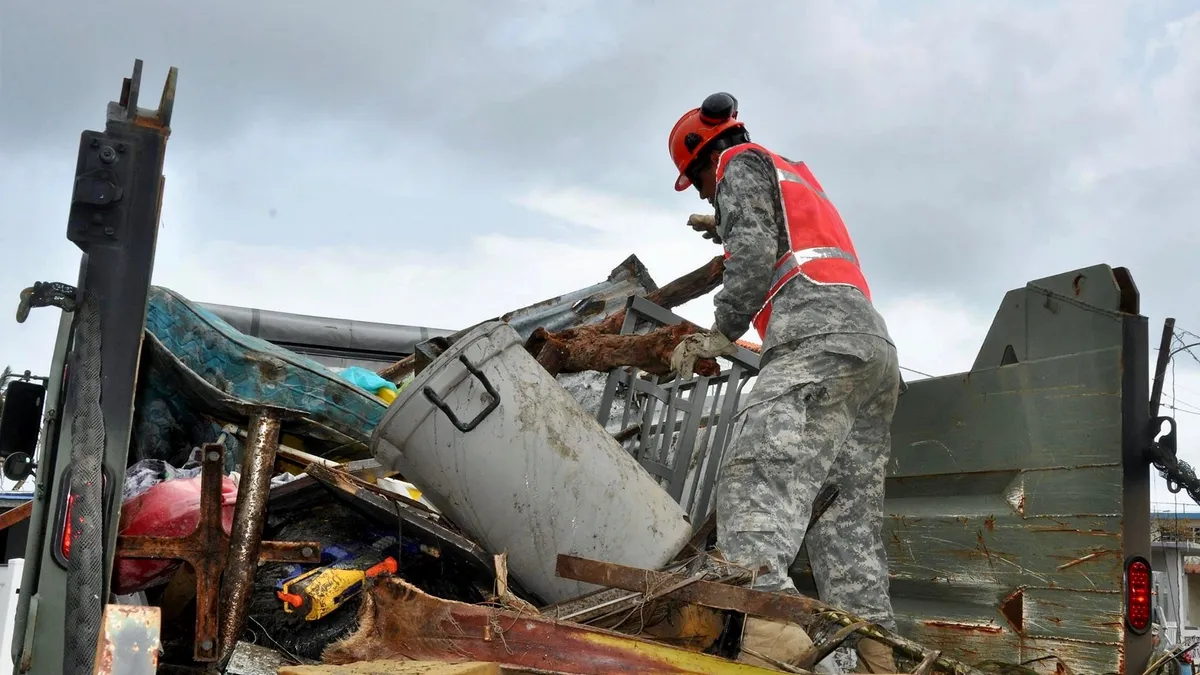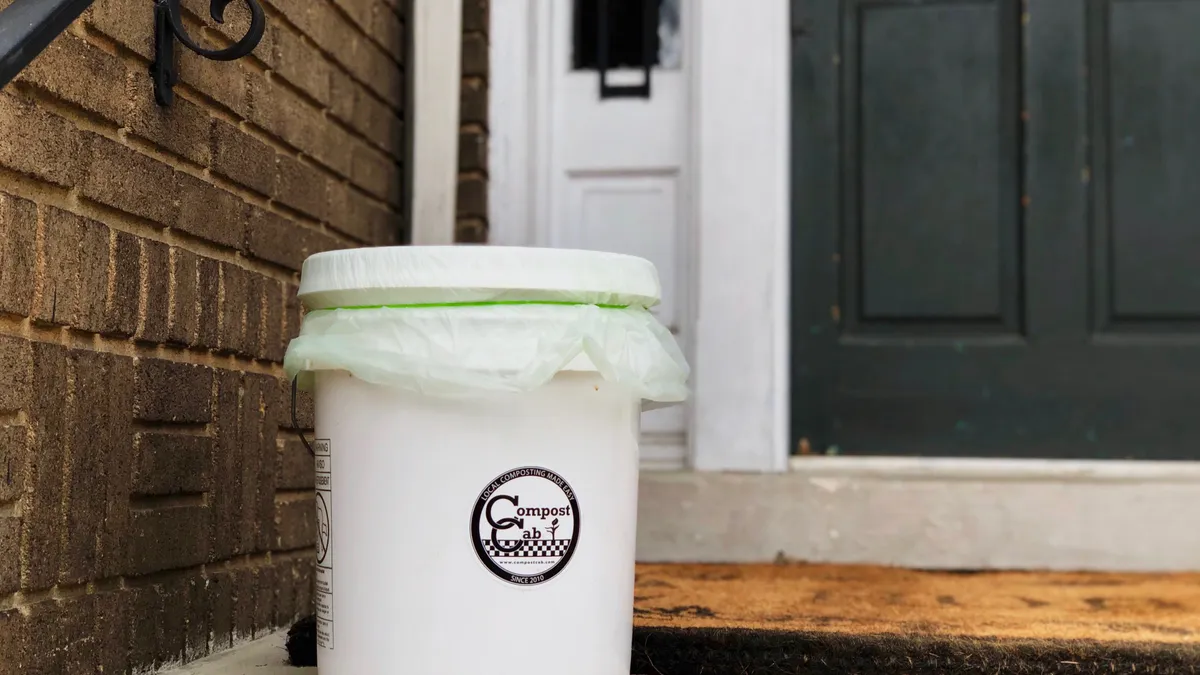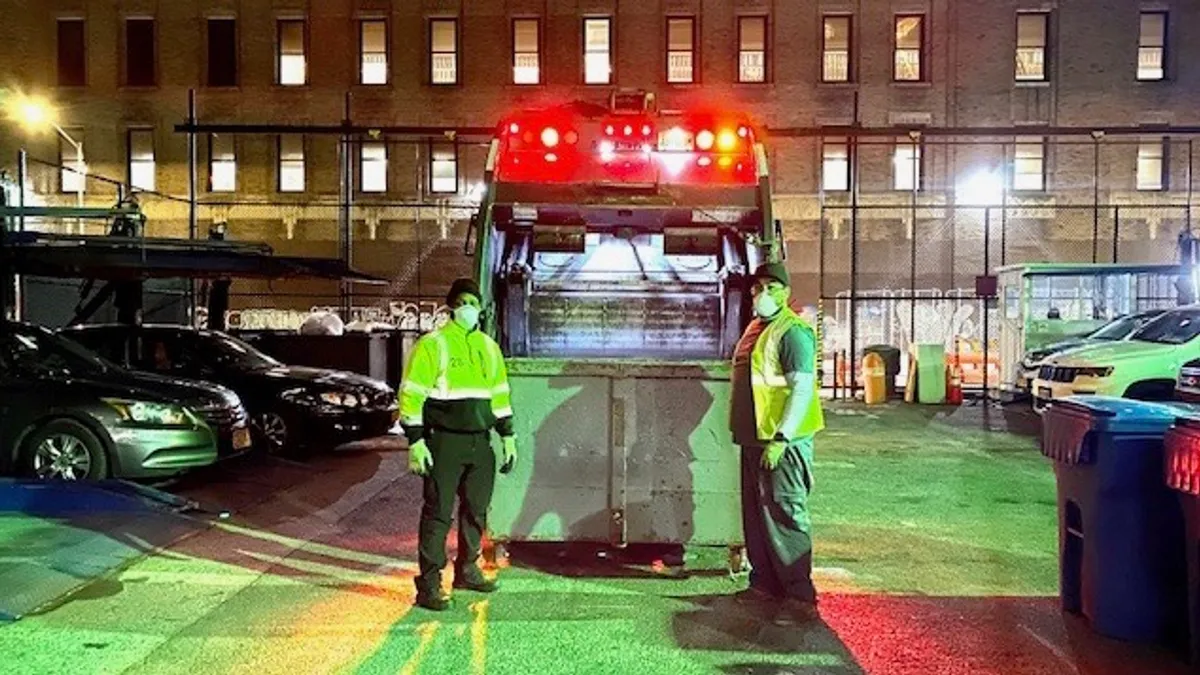Organics: Page 21
-
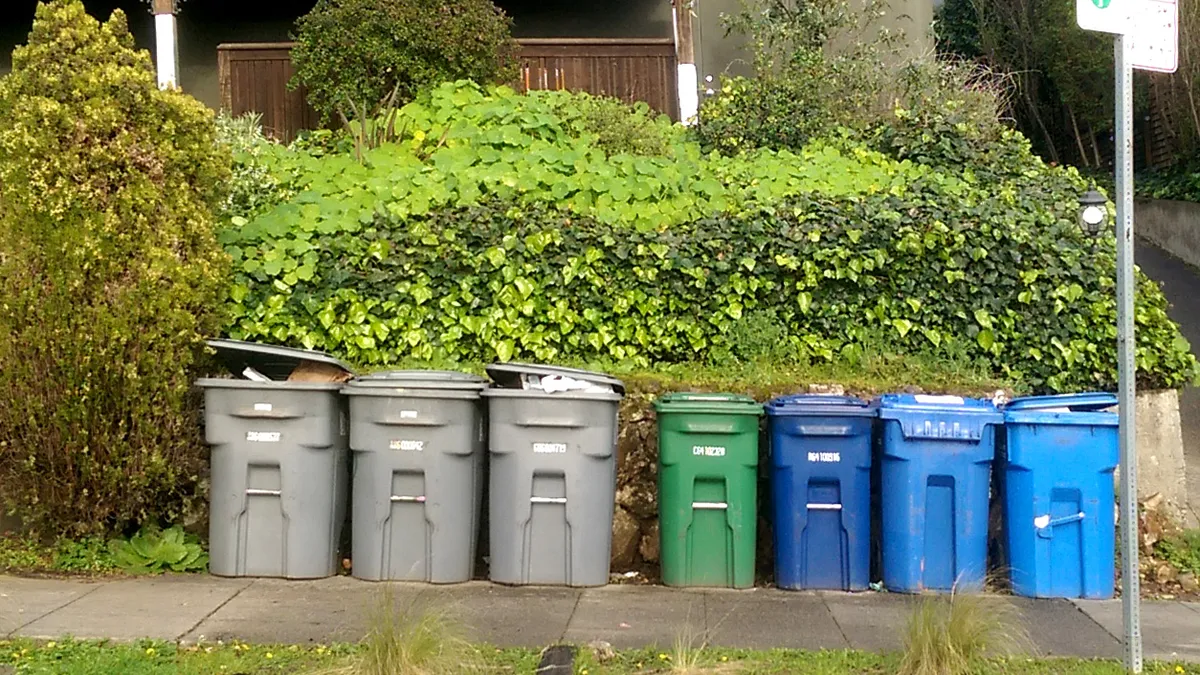
 Retrieved from Wikimedia Commons.
Retrieved from Wikimedia Commons.
SWEEP standard coming to fruition with industry support and pilot cities
After years of work, an accreditation system modeled after LEED is reaching a notable milestone. Those behind it hope to improve data standardization and drive sustainable materials management policies around the country.
By Cole Rosengren • Updated Aug. 31, 2020 -
Q&A
Wastequip aims to develop product GHG emission scores as part of new sustainability program
VP Kristin Kinder cited customer demand and industry trends as motivating factors behind a step many equipment manufacturers have yet to take, while also discussing diversity and inclusion efforts.
By Cole Rosengren • Aug. 25, 2020 -
Chicago anaerobic digester, urban farm project secures final funding for $32M campus
The facility, slated for a brownfield site, is expected to process 85,000 tons of organics annually when it opens in 2022. Backers describe it as a positive step toward environmental justice in the area.
By Katie Pyzyk • Aug. 20, 2020 -
Food waste coalition launches with 14 major manufacturers and retailers
The group, whose members include General Mills, Kellogg, Nestlé and Walmart, have targeted cutting global food loss per capita in half by 2025.
By Lillianna Byington • Aug. 19, 2020 -
Industry-supported organics hauling bill comes up short in California legislature
Proponents say AB 2959 would clarify a loophole allowing smaller haulers to undercut franchise agreements and hinder progress toward state diversion targets. Critics said it would hurt the state's efforts to curb organic waste.
By E.A. Crunden • Aug. 19, 2020 -
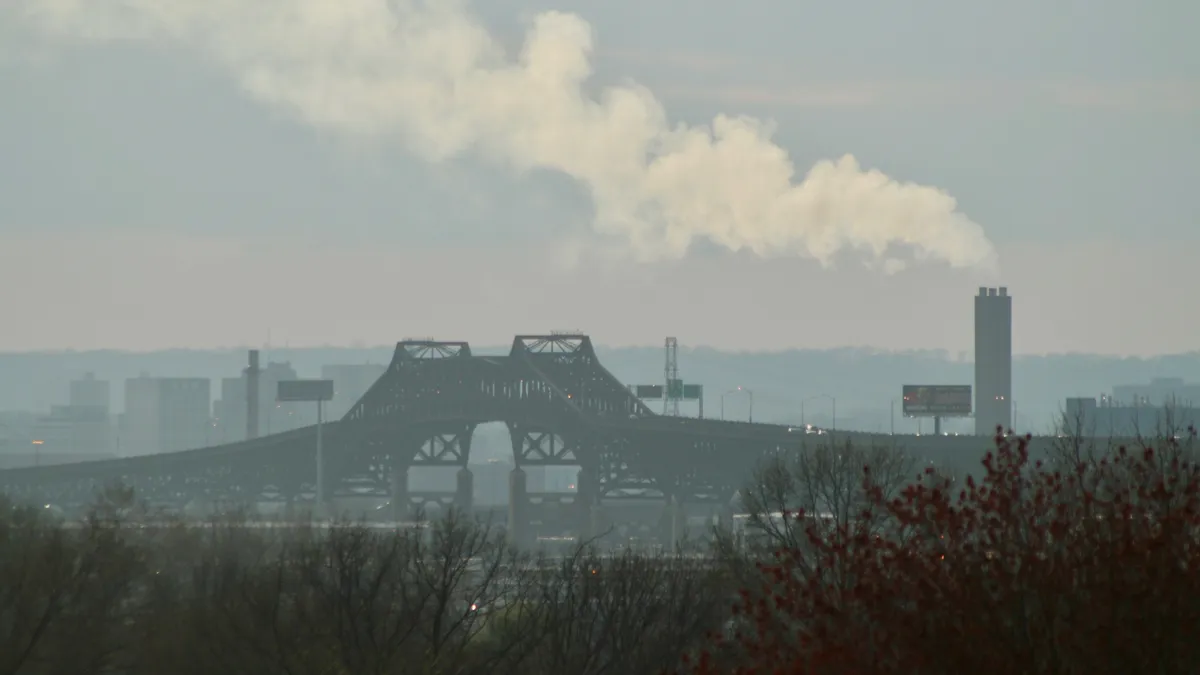
 The image by Kai Schreiber is licensed under CC BY-SA 2.0
The image by Kai Schreiber is licensed under CC BY-SA 2.0 Deep Dive
Deep DiveNew Jersey governor signs landmark environmental justice bill with big permit implications
The long-anticipated legislation had key backing from community groups. Despite some business opposition and industry trepidation, waste and recycling stakeholders also expressed support.
By E.A. Crunden • Updated Sept. 18, 2020 -
Halfway through an upended year, 8 big questions remain for waste and recycling
Back in January, Waste Dive laid out guiding themes for coverage around safety, M&A, sustainability, policy, organics and PFAS. Now, the pandemic has changed many of them and racial justice is also receiving heightened attention.
By Cole Rosengren , E.A. Crunden • Updated July 28, 2020 -
Major Connecticut WTE facility closing by 2022, waste to be exported
The expected move comes after plans to refurbish the Materials Innovation Recovery Authority's aging RDF facility fell apart for a host of reasons.
By Cole Rosengren • Updated Dec. 10, 2020 -
House Democrats back EPR, other recycling mandates in new climate plan
The lengthy document from the House Select Committee on the Climate Crisis endorses legislation like the Break Free From Plastic Pollution Act and hints at how Democrats could tackle policy on a wide range of emissions sources.
By E.A. Crunden • July 7, 2020 -
Public and private sector leaders project long-term changes due to coronavirus
During last week's SWANApalooza, Waste Connections, DSNY and other service providers discussed expectations for operational and fiscal changes to last into at least 2021.
By Cole Rosengren • June 29, 2020 -
Waste industry focuses on PFAS strategies, research as long-term concerns mount
This year's SWANApalooza featured numerous sessions on PFAS management and treatment, underscoring the heightened attention around "forever chemicals" at landfills and other facilities.
By E.A. Crunden • June 26, 2020 -
RTS acquires Enevo's US accounts, expanding presence in multiple states
The second acquisition for the New York-based technology company brings a sizable number of new customers, including multiple restaurant franchises.
By Cole Rosengren • June 15, 2020 -
Deep Dive
Connecticut policy to limit landfilling faces pivotal moment as major WTE project stalls
An aging RDF facility that handles one-third of Connecticut's waste could begin exporting to out-of-state landfills unless an agreement can be reached between the local authority, developer and state officials in less than three months.
By Cole Rosengren • June 11, 2020 -
GFL Environmental pledges to disclose, reduce GHG emissions in coming years
The Canada-based company's first sustainability report calculates emissions avoided from recycling, organics and other lines of business. GFL also touted its efforts to divert nearly 1.17 million metric tons of material in 2019.
By Cole Rosengren • May 27, 2020 -
Rubicon's first ESG report emphasizes software pivot, $208M potential savings for cities
The technology company plays up its municipal offerings and highlights case studies from commercial customers, while talking about a "waste wake-up call." More detailed climate metrics are expected in a future edition.
By Cole Rosengren • May 22, 2020 -
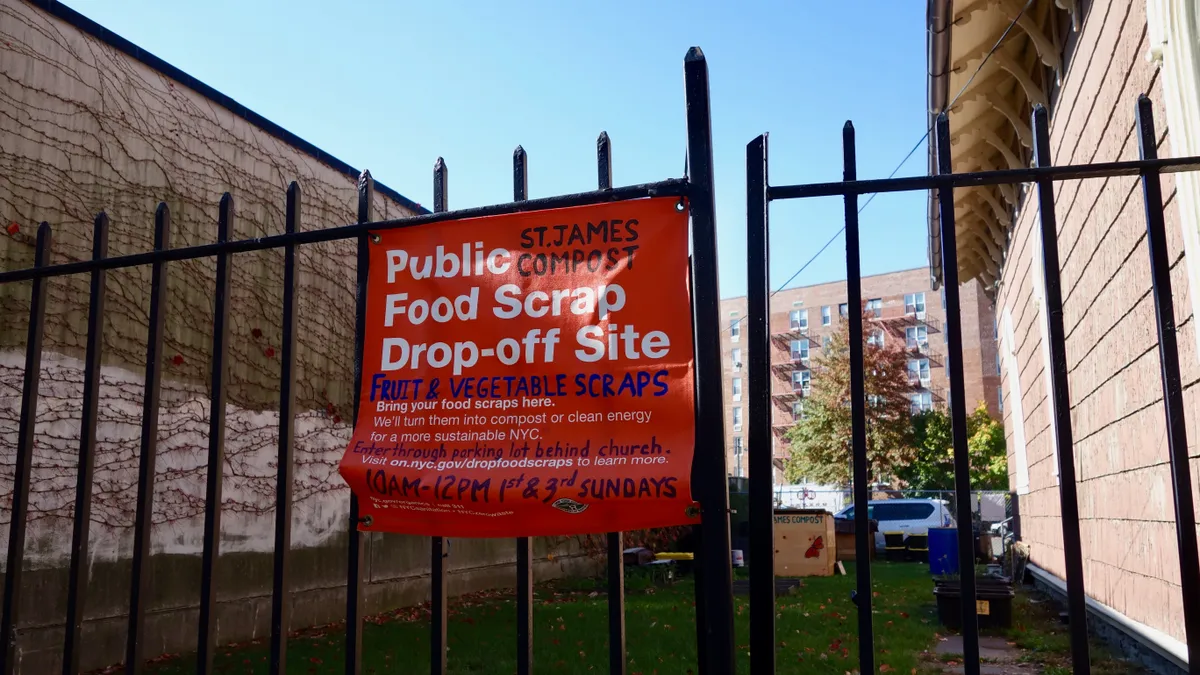
 The image by Tdorante10 is licensed under CC BY-SA 4.0
The image by Tdorante10 is licensed under CC BY-SA 4.0
New York follows through with sanitation cuts, preserves some organics funding
Mayor Bill de Blasio's administration cut funding for curbside organics collection, recycling outreach and other areas in a new budget agreement. Funding for drop-off sites and community composting was preserved.
By E.A. Crunden • Updated July 1, 2020 -
Deep Dive
Puerto Rico's yearslong debate over WTE continues as the island's landfill issues mount
After a proposed incinerator project stalled in 2018, the territory's long-term plan remains uncertain as noncompliant landfills are reaching capacity. Meanwhile, recycling programs and waste reduction efforts are still evolving.
By Genevieve Glatsky • May 1, 2020 -
One year covering COVID-19's impact on the waste and recycling sector
The coronavirus pandemic brought sweeping changes to the U.S., including significant effects for an industry that continued its work throughout the crisis. Catch up on all of Waste Dive's reporting from the initial year.
By Waste Dive Team • Updated March 15, 2021 -

 "200323-Z-NI803-0053". Retrieved from Matt Hecht.
"200323-Z-NI803-0053". Retrieved from Matt Hecht. Deep Dive
Deep DivePandemics were not part of most contingency plans, but waste and recycling industry proving resilient
Precautions previously in place for industry disruptions did not account for a coronavirus-induced economic disruption. Companies and public sector consultants discuss what's next more than a month in.
By Cole Rosengren , E.A. Crunden • April 17, 2020 -
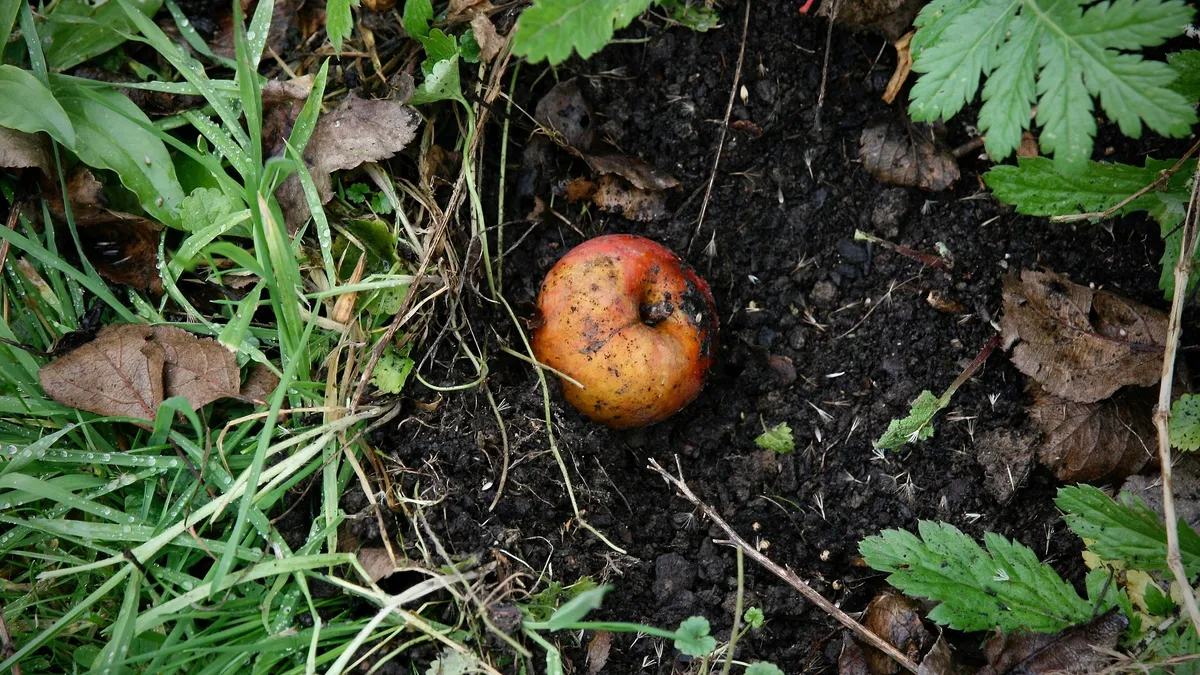
 Annette Meyer. (2018). Retrieved from https://pixabay.com/photos/autumn-windfall-apple-compost-3795989/.
Annette Meyer. (2018). Retrieved from https://pixabay.com/photos/autumn-windfall-apple-compost-3795989/.
Reducing food waste emerges as key climate solution
Project Drawdown's 2020 report, released before the pandemic, elevated food waste as an increasingly relevant solution while highlighting the role industry can play in tackling the issue through reducing waste sent to landfills.
By E.A. Crunden • April 16, 2020 -
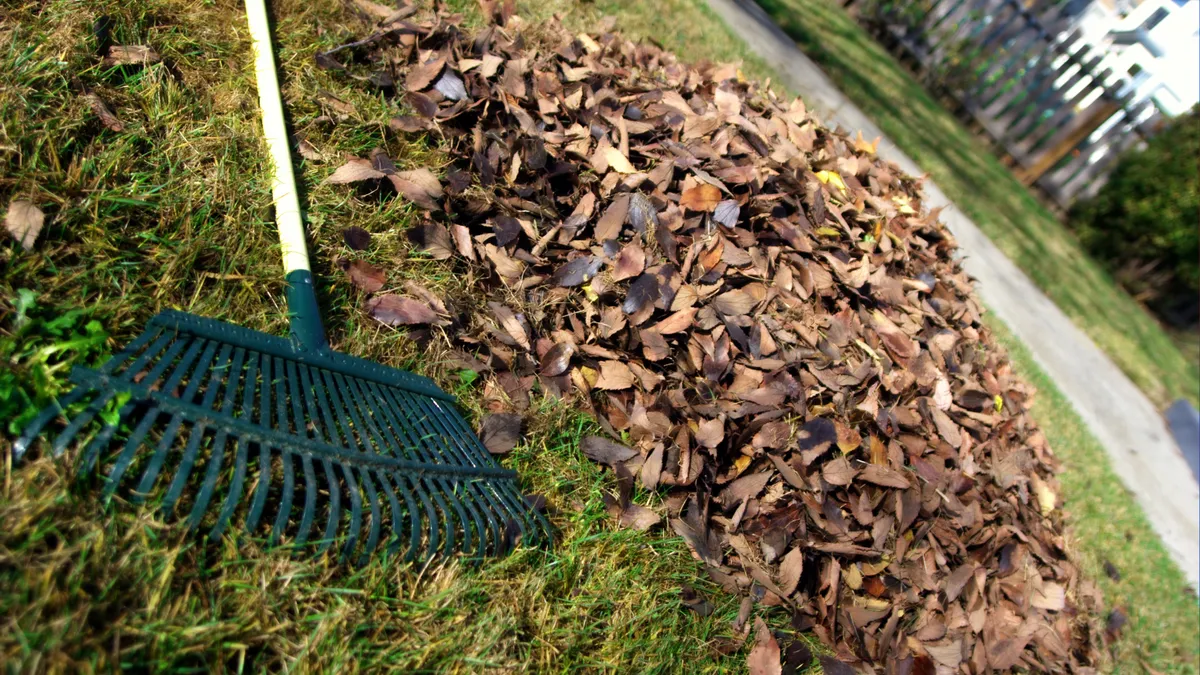
 "Leaf rake and leaves" by David Goehring is licensed under CC BY 2.0
"Leaf rake and leaves" by David Goehring is licensed under CC BY 2.0
Multiple states suspend landfill bans for yard waste over COVID-19 fallout
Iowa, West Virginia and Kentucky have all temporarily suspended disposal bans due to workforce limitations. At the same time, many municipalities are grappling with a sudden uptick in yard waste as residents stay home.
By E.A. Crunden • April 14, 2020 -
Dishwashers and data laid the groundwork for California city's landmark waste reduction ordinance
The ReThink Disposable program, designed to help restaurants switch to reusables, was a model for Berkeley's foodware ordinance set to fully take effect this summer. Whether the COVID-19 pandemic will disrupt those plans remains to be seen.
By Karine Vann • April 9, 2020 -
Small-scale organics recyclers struggle amid coronavirus pandemic
New York City and San Francisco are including curbside organics collection among essential public services. But fallout from COVID-19 has meant dramatic changes for small-scale composters, including temporary program suspensions.
By E.A. Crunden • March 31, 2020 -
Deep Dive
Uncharted waters: Waste and recycling companies adapting to the coronavirus economy
Commercial volumes are down dramatically in many markets, employee hours are being cut and contract terms are tested. How service providers respond could have lasting reputational and financial implications.
By Cole Rosengren • March 31, 2020 -
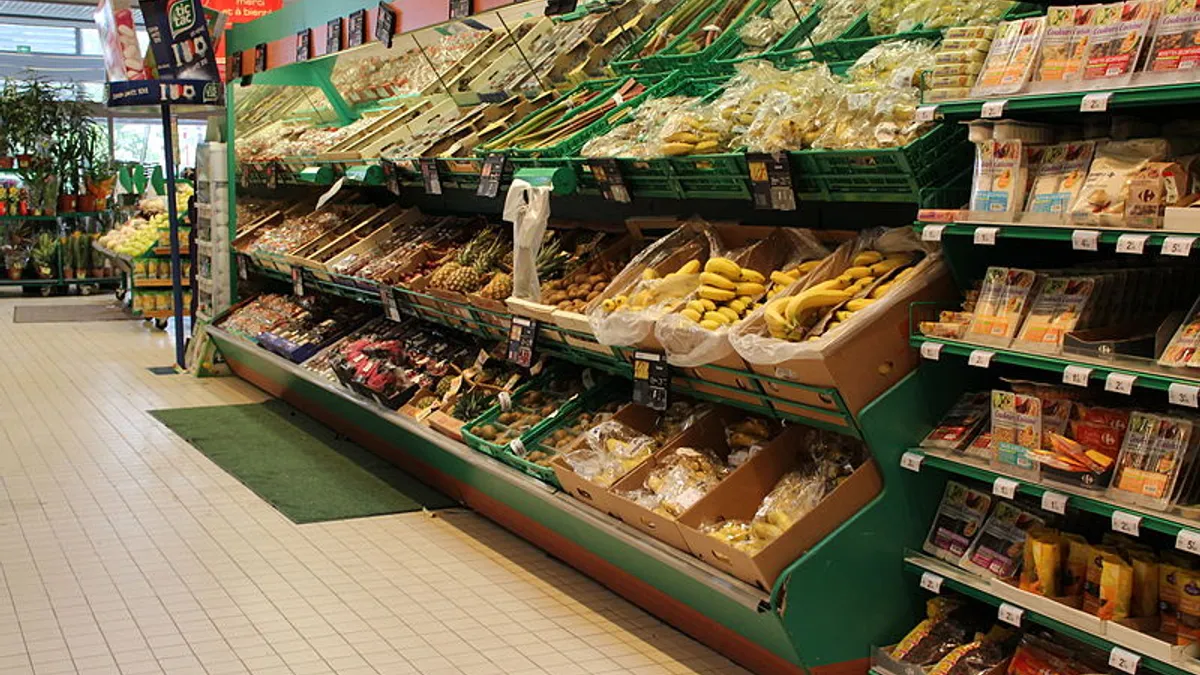
 The image by Lionel Allorge is licensed under CC BY-SA 3.0
The image by Lionel Allorge is licensed under CC BY-SA 3.0
Food waste impacts emerging as coronavirus shifts life from commercial to residential
The normal supply chain for excess food has been upended due to an economic freeze keeping people home in many parts of the country. ReFED and others are tracking the issue, helping ongoing food recovery efforts continue.
By E.A. Crunden • March 25, 2020

